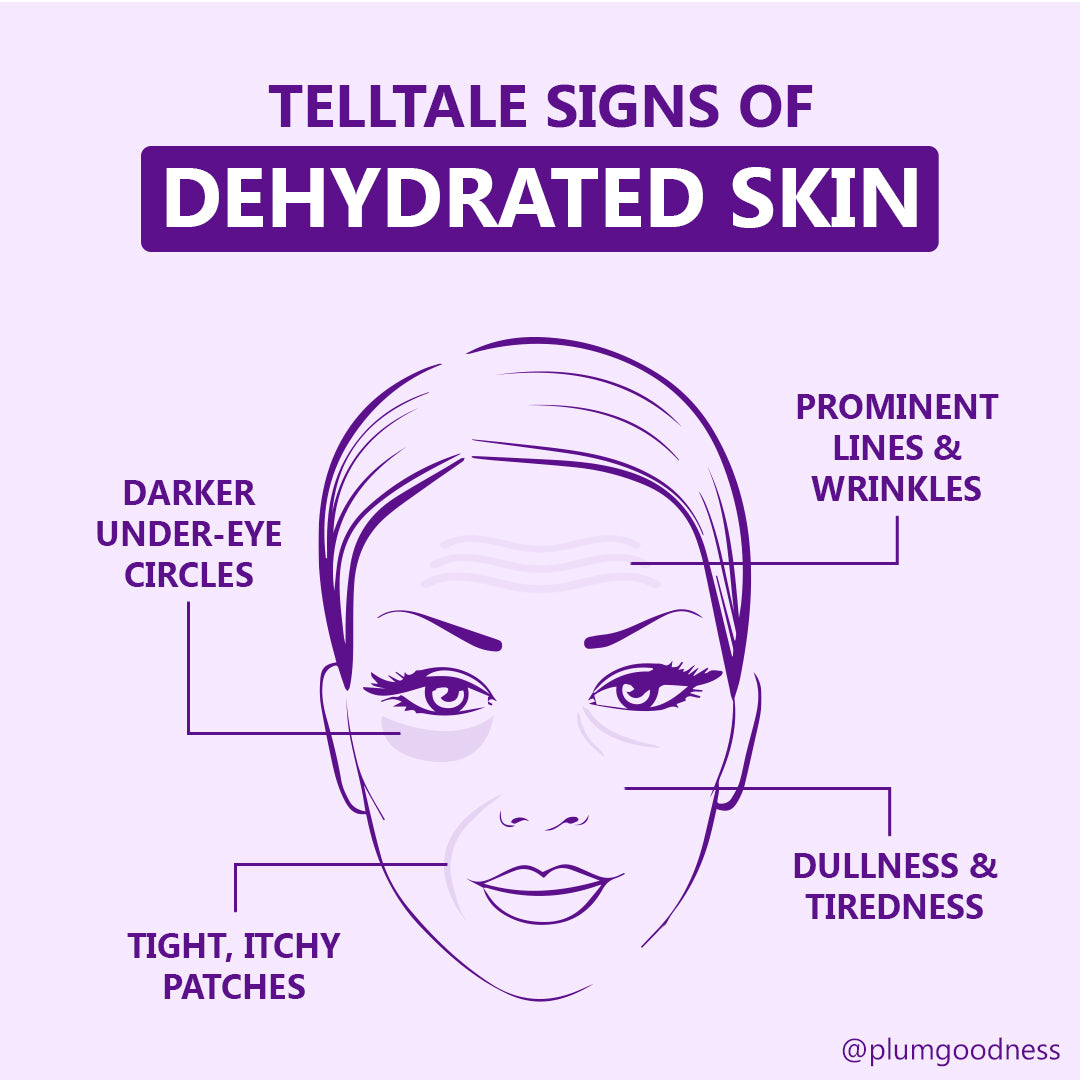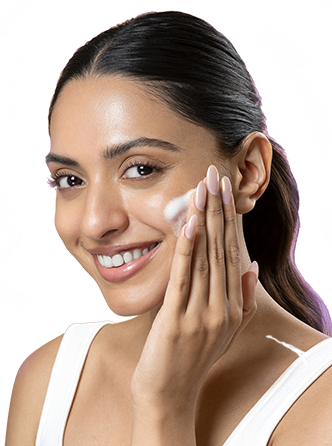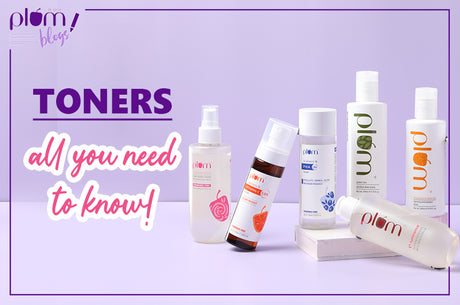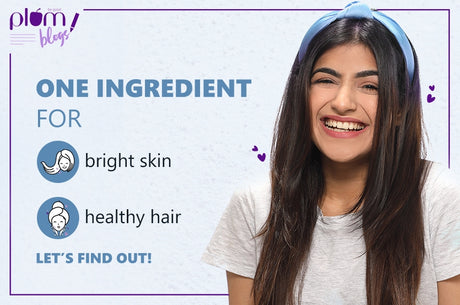
IN THIS ARTICLE
Summer is officially here, and with it comes the customary sweating, greasiness, and stickiness—especially for those of us who love to make the most of this season outdoors. This also means it’s time to pull out all the stops to combat the inevitable greasiness, from switching to lighter moisturizers to blotting and powdering our faces every 2 hours.
So why exactly are we talking about dehydrated skin and is it really a summertime skin care woe?
Dehydration and dryness are two different conditions, even though they are talked about synonymously. Dryness occurs when the skin lacks sebum (natural oils) and dehydration occurs when the skin lacks water. And while some experience dryness throughout the year, irrespective of weather conditions (as it is a skin type), many tend to experience dehydration in the warmer months (as it is a condition and not a skin type). So, are we trying to say that no matter how much grease your skin accumulates at the end of a sweltering day, it could still be dehydrated? Absolutely!
Why Does Our Skin Experience Dehydration in the Summer?
- In the summer, there is an increase in water loss from the body and while this causes dehydration in the body, it also has an effect on the skin
- Sun exposure is known to further exacerbate skin dehydration due to transepidermal water loss (water that evaporates from the skin)
- Air conditioners are designed to suck up all the moisture in a room, and in doing so they also pull in moisture from your skin
Telltale Signs of Dehydrated Skin

Summer Skin Care Tips to Deal with Dehydrated Skin
(1) Use cool water to cleanse your face
This might seem like a no-brainer (who takes hot showers in the summer?), but a lot of skincare enthusiasts believe in washing their faces with hot water. This could be due to the widespread misconception that hot water and steam aid in opening the pores, thus allowing for a deeper cleanse. Apart from pores not having the capability to open and close, using hot water only strips the skin of essential moisture, leaving it dry and dehydrated. To avoid irritating your skin, we recommend using cool or lukewarm water to cleanse your skin.
(2) For an instant hit of hydration... TONE!

It’s absolutely reasonable to want to strip your elaborate skincare routine down to the basics in the summer. But one product that we do not recommend tucking away to the corner is your toner. If your cleanser isn’t gentle enough, it can cause a little dryness and dehydration. And if your moisturizer is moisturizing, but not hydrating enough, it will address dryness but not dehydration. Toning is essentially the hydrating step of a skincare routine. Between your cleansing and moisturizing step, you want to give your skin a burst of hydration so that it feels plump and supple. To maximize the hydrating benefits of your toner, don’t wait for it to dry down completely. Instead, pat on your moisturizer while your skin is still damp.
(3) Say ‘aloe you’ to your skin after a day in the sun

If you’ve spent your day basking in the golden glow of the sun, aloe vera gel is your second-best friend (sunscreen will always be your first). Aloe vera has anti-inflammatory as well as cooling properties that help soothe the skin. Not just that, aloe vera consists mainly of water and therefore it hydrates the skin without making it greasy. We love to use it as a soothing mask after a long day in the sun, and for light hydration on days our skin feels particularly oily.
plum tip: freeze aloe vera gel into small cubes for an extra cooling effect and easier application
(4) Hydrate on the go with a quick spritz

Hot summer days can leave you and your skin exhausted. And while a cool drink is a good pick-me-up for you, your skin needs a little more. A revitalizing face mist is a great handbag essential for this season as it can refresh, hydrate and replenish your skin as you go through your day. Get spritzing and we’re sure you’ll agree—tired skin will not be ‘mist’!
(5) HA-ppy hour? Give your skin a drink!
Don’t get too excited, because we’re talking about our favorite active - Hyaluronic Acid (HA). Hyaluronic acid is a sugar molecule that is found naturally in our skin. It attracts moisture from the environment, pulls it back and locks it into the skin. In fact, it can hold water up to 1,000 times its weight. All that moisture helps plump the skin and keeps it happily hydrated! Hyaluronic acid can be found in several skincare products, but if you want a potent dose of this super hydrator, we recommend using a hyaluronic acid serum that’s free of synthetic colors, artificial fragrances and essential oils. Just don’t forget to seal it with a moisturizer!
plum tip: hyaluronic acid draws water from the air. But if the air lacks moisture (in the case of air-conditioned rooms), it draws water from deeper layers of the skin. So if you’re going to be in an air-conditioned room/office all day, keep yourself adequately hydrated by drinking plenty of water.
FAQs
Q1. Do dry skin and dehydrated skin have the same signs?
Dry skin is a skin type, whereas dehydrated skin is a temporary condition. It is easy to get confused between the two, however, dryness is a lack of sebum (natural oil) and dehydration is a lack of water in the skin. Dehydrated skin will most likely feel dull, rough and tight.
Q2. How can I tell if my skin is dehydrated?
You can try the pinch test. After cleansing and patting your skin dry, gently pinch a small section of your cheek. Hold it for a few seconds, let go and observe. If your skin snaps back into shape immediately, it is not dehydrated. However, if it takes a few seconds to snap back or if you have to smooth it back to shape, your skin is most likely dehydrated.
Q3. Which skincare ingredients help with dehydrated skin?
If you have dehydrated skin, include ingredients like hyaluronic acid, aloe vera and glycerin in your skincare routine.

















